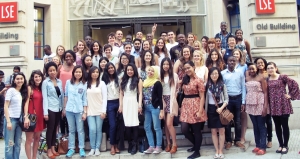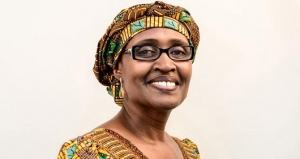
Spent an afternoon with a bunch of NGO Finance Directors this week. I was presenting Fit for the Future (memo to self, never write another paper about the future of INGOs – their thirst for navel-gazing is limitless).
The discussion was more interesting than you might think – money is the lifeblood of the aid business, and FDs have the best overview of how that blood circulates, from one end (fundraising) to the other (programmes and advocacy). Not only that, but some of them at least are expanding their role from ‘keeping score’ for their organizations to a more frontline role of using cash to create change (everything from dragon’s den style investment competitions to mentoring and training local organizations on financial skills).
Happily, it was Chatham House Rules, so no need to remember who said what. Some highlights:
Learning from our own history
The aid business suffers from both amnesia and nostalgia: some people consign the past to oblivion and think everything needs to be new (including lots of painfully and expensively reinvented wheels). Others just want to get bring back the good old days (1970s/decade of choice). What would a middle ground look like – sifting through past approaches to identify what can most promisingly be resurrected and adapted to current circumstances?
One candidate is going back to core funding of grassroots organizations, rather than demanding they come up with projects all the time. In many ways, small local organizations are a great fit with systems thinking, if we are trying to move from supertanker to a flotilla of small rafts more suited to the complex, fast-changing rapids of real life. Good local organizations are embedded in local realities, endure far longer than individual projects, and move swiftly from issue to issue according to the changing context. So can donors really not find a way to back good ones with the right kind of core funding, rather than make them take the energy-sapping obstacle course of project funding? (That probably doesn’t mean chucking millions at some small CSO, by the way – that’s as likely to destroy as help).
Bridging Loan International

One of the biggest nightmares for organizations on the ground is that the grant cheque doesn’t arrive on time. When living from project to project (see previous point), that means people getting laid off, and carefully assembled teams falling apart. Surely there must be a funder willing to put some money into a bridging loan system, akin to warehouse receipts for farmers? The CSO gets a letter of intent from its funder saying funding is a-coming, and can use that to get an emergency loan from Bridging Loan International, perhaps with some kind of insurance against a last minute change of mind from the funder?
What is the private sector in our heads?
I fear that parts of the aid biz have internalised a 1940s Fordist/Taylorist private sector model rather than anything more modern. So it’s all about plans, control, metrics, efficiency, predictability, rather than risk-taking, trusting a few mavericks to try stuff out, or generally more Venture Capitalist type approaches.
Could DFID help us all get SMARTer?
I was struck by the contrast between the feedback from partner organizations (funding is horrendously complex, with numerous competing reporting frameworks that suck the energy out of any organization) and DFID’s brilliant internal ‘SMART rules’ process, which has gone in the opposite direction, simplifying rules and pushing power down the decision chain closer to the programme. That process began with an ‘end to end’ review of how decisions are made within DFID, that identified a lot of unnecessary bureaucratic undergrowth that has now been cleared away. Wouldn’t it be great if DFID, preferably with other donors, extended the end to end review beyond its boundaries to the organizations it funds, and worked with them to design SMART rules for the whole system?
As I say, it was a fun session, and confirms my general feeling that you often get more out of spending time with people from other disciplines, than splitting hairs with your own mafia.
Duncan Green is senior strategic advisor at Oxfam GB, author of ‘From Poverty to Power’, and Professor in Practice at LSE. He will be introducing Winnie Byanyima, executive director of Oxfam International, when she visits LSE to deliver her public lecture ‘Is Africa Rising?’ on 12 October 2015. More details available here.
Related Posts
   |





